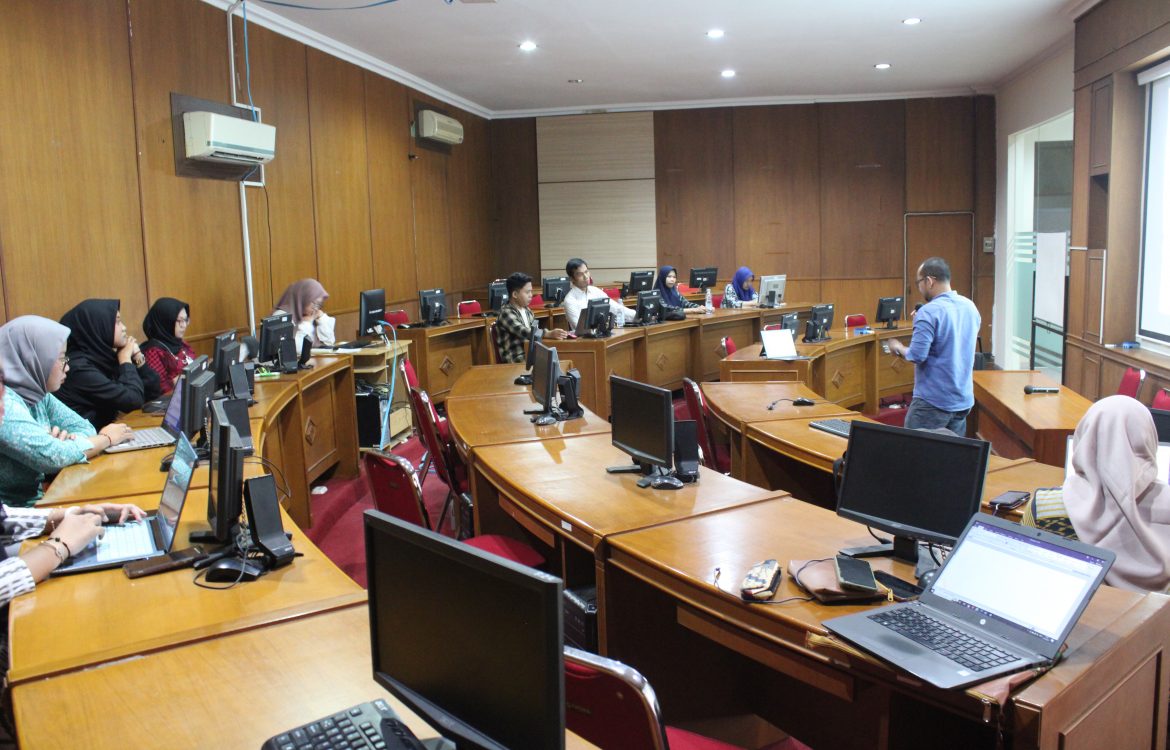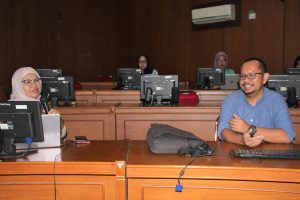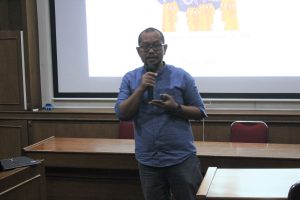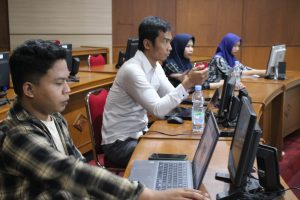
MESP FEB UNS Hosted a Workshop on Experimental Economics
Experimental economics is an alternative way to collect data in economic research, specifically behavioral data of economic agents. The goal is to get a collection of data on a specific problem that is difficult or impossible to be gathered in the usual way.
 Roth (1985) identified three types of experiments, the first of which was designed to discuss economic theory. The second is to investigate previously identified anomalies and the third is designed to inform policy. This statement was delivered by Dr. AGR. Deden Dinar Iskandar, SE, MA, a lecturer from FEB UNDIP, in the Experimental Economics Workshop organized by the Master in Economics and Development Studies (MESP) Study Program, Faculty of Economics and Business (FEB), Universitas Sebelas Maret (UNS). The hybrid workshop was conducted at the Teleconference Room Bachtiar Effendi Building FEB UNS and Zoom Meeting.
Roth (1985) identified three types of experiments, the first of which was designed to discuss economic theory. The second is to investigate previously identified anomalies and the third is designed to inform policy. This statement was delivered by Dr. AGR. Deden Dinar Iskandar, SE, MA, a lecturer from FEB UNDIP, in the Experimental Economics Workshop organized by the Master in Economics and Development Studies (MESP) Study Program, Faculty of Economics and Business (FEB), Universitas Sebelas Maret (UNS). The hybrid workshop was conducted at the Teleconference Room Bachtiar Effendi Building FEB UNS and Zoom Meeting.
In the occasion hosted on Wednesday 21 June 2023, he explained that experimental economics uses controlled experiments with people as research subjects to answer research or policy questions. “In experiments, we conduct controlled trials with people as subjects, almost similar to surveys but with controlled environments. There are data that we need but cannot be collected through a conventional way, for example, data about corruption, taxpayer compliance percentage, or data related to the response to a policy that the policy has not been implemented,” he explained.
Further, he expla ined that economic theory is designed to be generally applicable to different sets of subjects.
ined that economic theory is designed to be generally applicable to different sets of subjects.
Economic experiments at first did not even consider the participants’ demographic data and very little analysis was done to examine how different individuals act differently.
“In an experiment, there has to be an incentive, something positive that moves people to do something. People must be incentivized if we are to make people obey. All economic experiments involved equivalent rewards to participants. This practice is considered important to maintain the validity of the experiment,” he said.
 There are 4 types of experiments, the first being the conventional lab experiments, experiments that use a collection of students as subjects, use framing, and are carried out in a laboratory setting with the application of a set of rules. The next type is Artefactual field experiments, which is the same as conventional laboratory experiments but with a collection of non-standard subjects (not students). The third is Framed field experiments, which is the same as artefactual field experiments but using real context both in the task, rules, or collection of information used by the subject.
There are 4 types of experiments, the first being the conventional lab experiments, experiments that use a collection of students as subjects, use framing, and are carried out in a laboratory setting with the application of a set of rules. The next type is Artefactual field experiments, which is the same as conventional laboratory experiments but with a collection of non-standard subjects (not students). The third is Framed field experiments, which is the same as artefactual field experiments but using real context both in the task, rules, or collection of information used by the subject.
The last is Natural field experiments, which is the same as framed field experiments but in an environment where the subject naturally performs his activities and the subject does not know that they are in the experiment. This type is widely used, for instance, a study that wants to see the behavior of middle to lower economic groups in terms of income subsidies from the government. In this experiment type, the researcher need to observe participants who receive a subsidy after a few weeks or months, and then the recipients’ behavior before and after getting a subsidy. By doing this observation, the people (subject) involved in the research will not feel like they’re in an experiment or observation.
